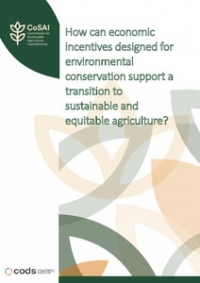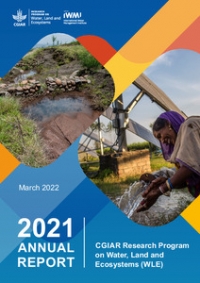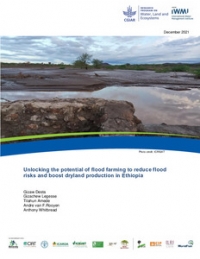This blog is part of the Agriculture and Ecosystems Blog’s month-long series on Restoring Landscapes. Read the full post on the Global Soil Week Blog.
 Restoring degraded lands in East Africa. Photo: Neil Palmer
Restoring degraded lands in East Africa. Photo: Neil Palmer
For farmers in North America, Europe and parts of Asia, growing enough food has never been a problem thanks to a centuries-old practice that leads to high yields: the application of chemical fertilizer to soil. It has become increasingly obvious, however, that this soil-booster—a US$100 billion dollar industry that dates back to the 19th century—is seriously damaging to the environment. Nitrate and other chemicals that comprise fertilizer have polluted streams and lakes and seeped into drinking water supplies, killing wildlife and threatening human health.
Why, then, are soil scientists around the world, many of whom are gathered in Berlin this week for Global Soil Week, lobbying for a rapid increase in the use of chemical fertilizers in sub-Saharan Africa? Wouldn't that mean repeating the mistakes of the developed world?
Not necessarily. Not all soil is created equal—and in sub-Saharan Africa, it’s in bad shape. Most soils in the tropical region aren’t as fertile as soils in the temperate north because they are millions of years old and over time nutrients have been leached. Without the addition of fertilizer, organic or inorganic, these soils can’t achieve the potency necessary to feed the population—expected to quadruple by the end of the century— that relies on these lands for their food.
Anti-fertilizer advocates argue that instead of applying more chemicals to soils, farmers in Africa should turn to environmentally-friendly organic fertilizer, such as manure, compost and plant residues. Indeed, researchers have found that organic fertilizer is better than its chemical counterpart at sustaining soil fertility and health. But an organic-only solution still falls short.
Read the full post on the Global Soil Week blog.
Related post:
Getting policies right for investment in African agriculture: fertilizer subsidies on the comeback?
by Ademola Braimoh






















